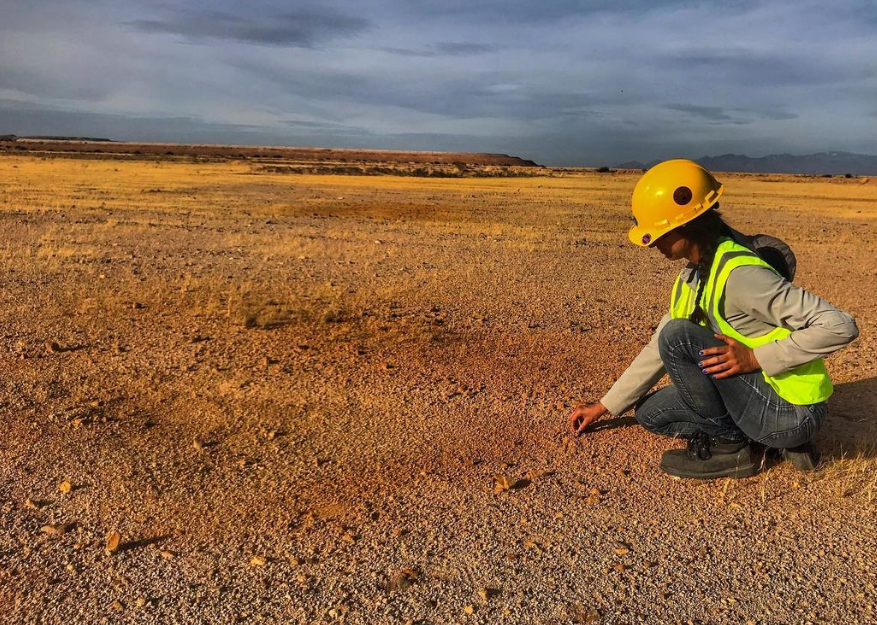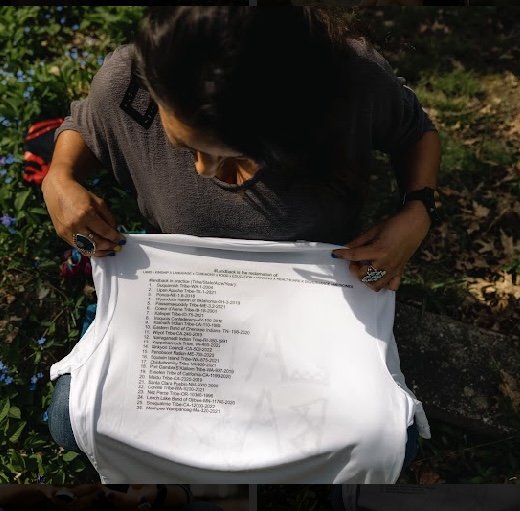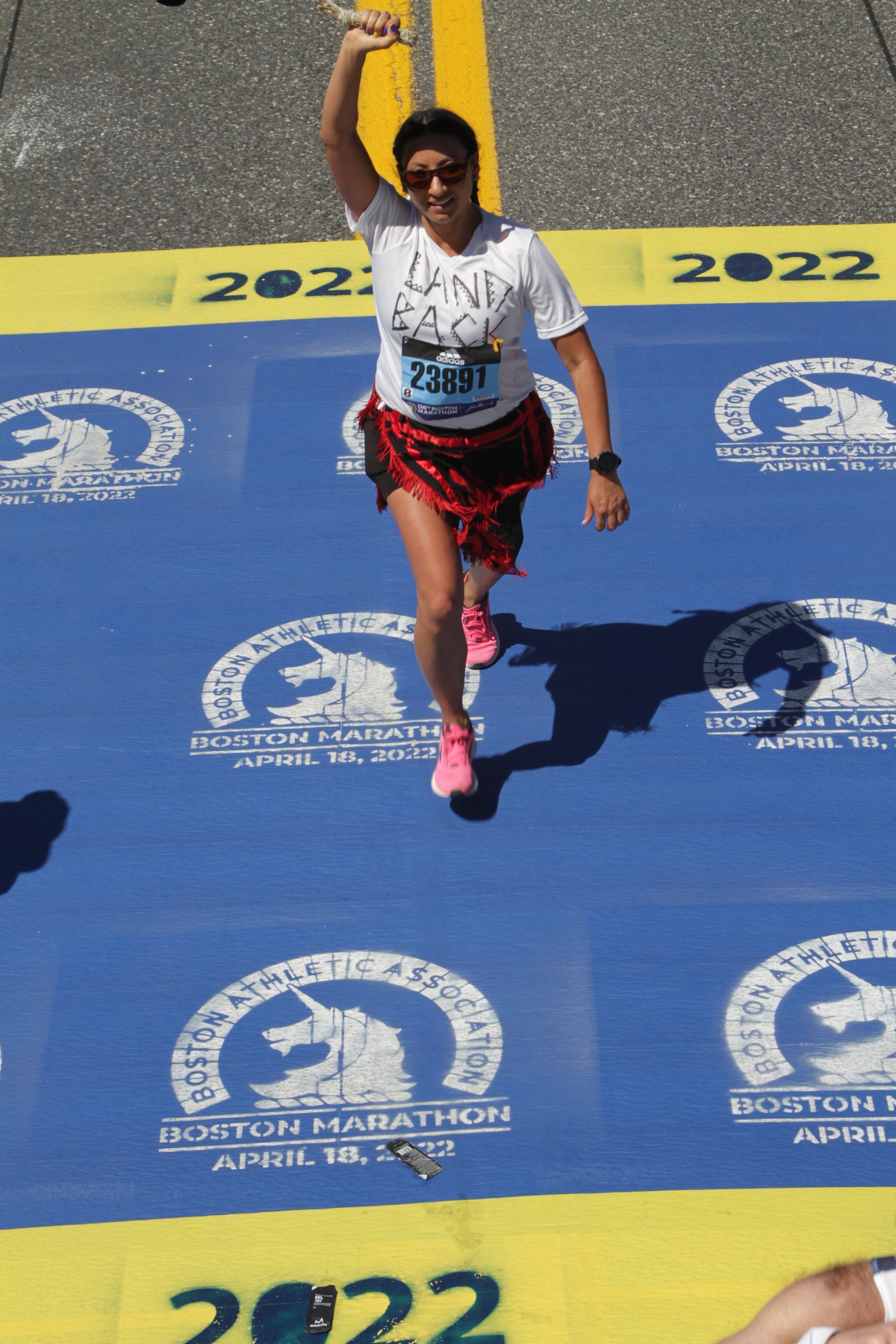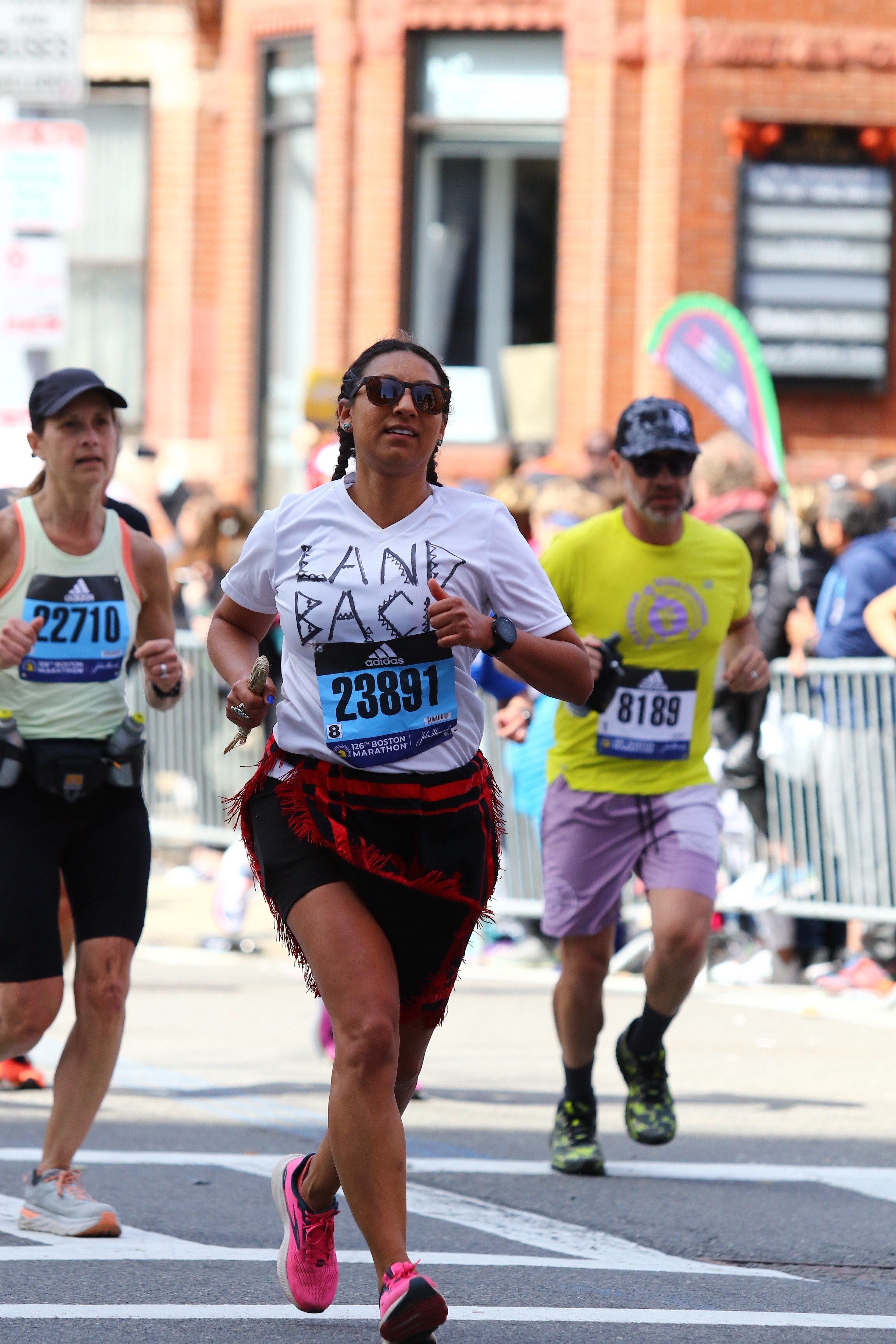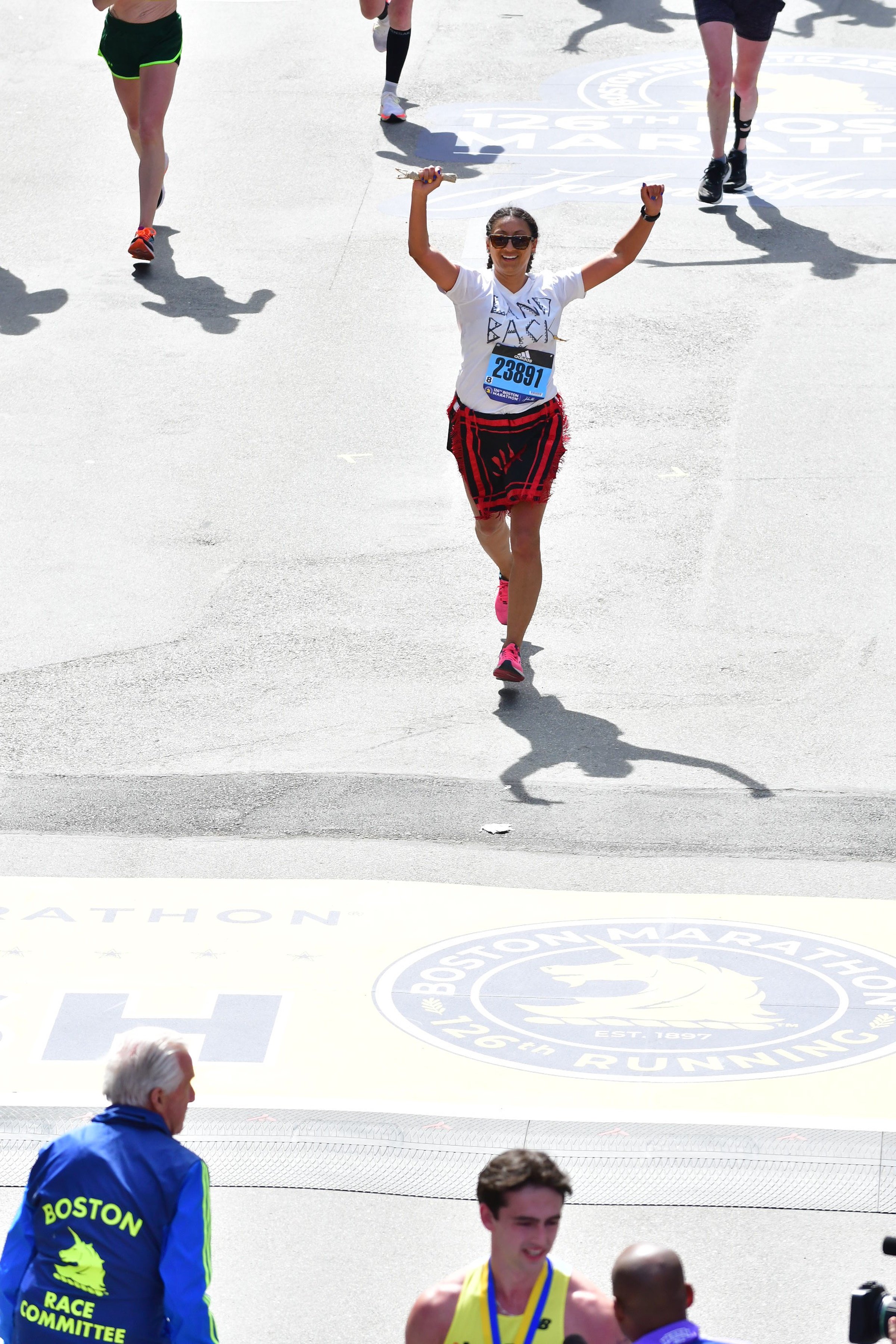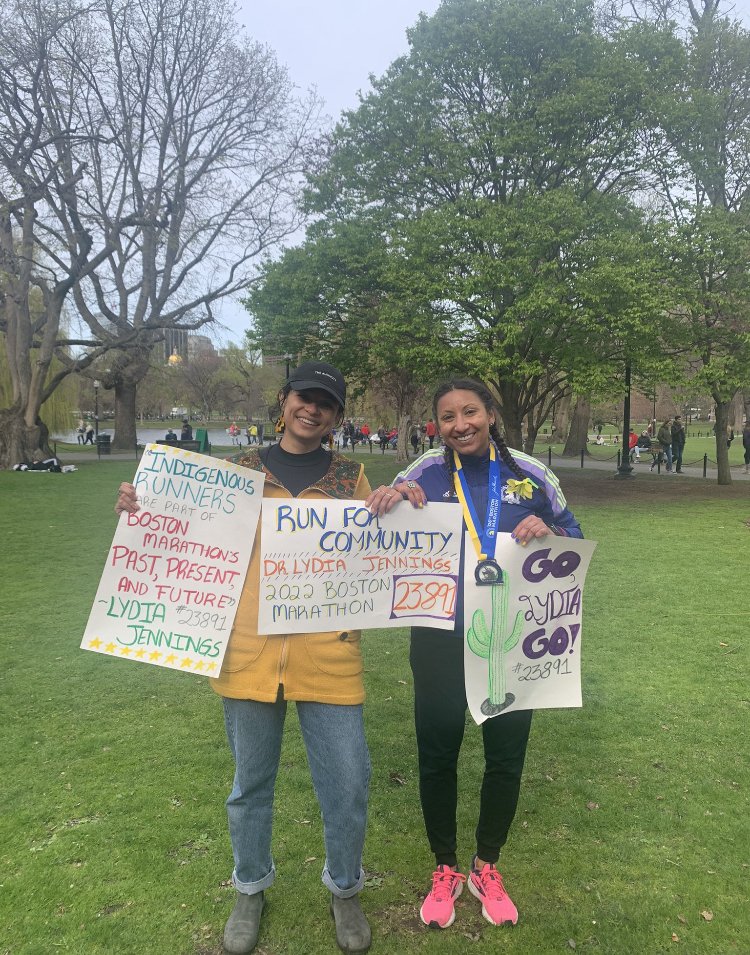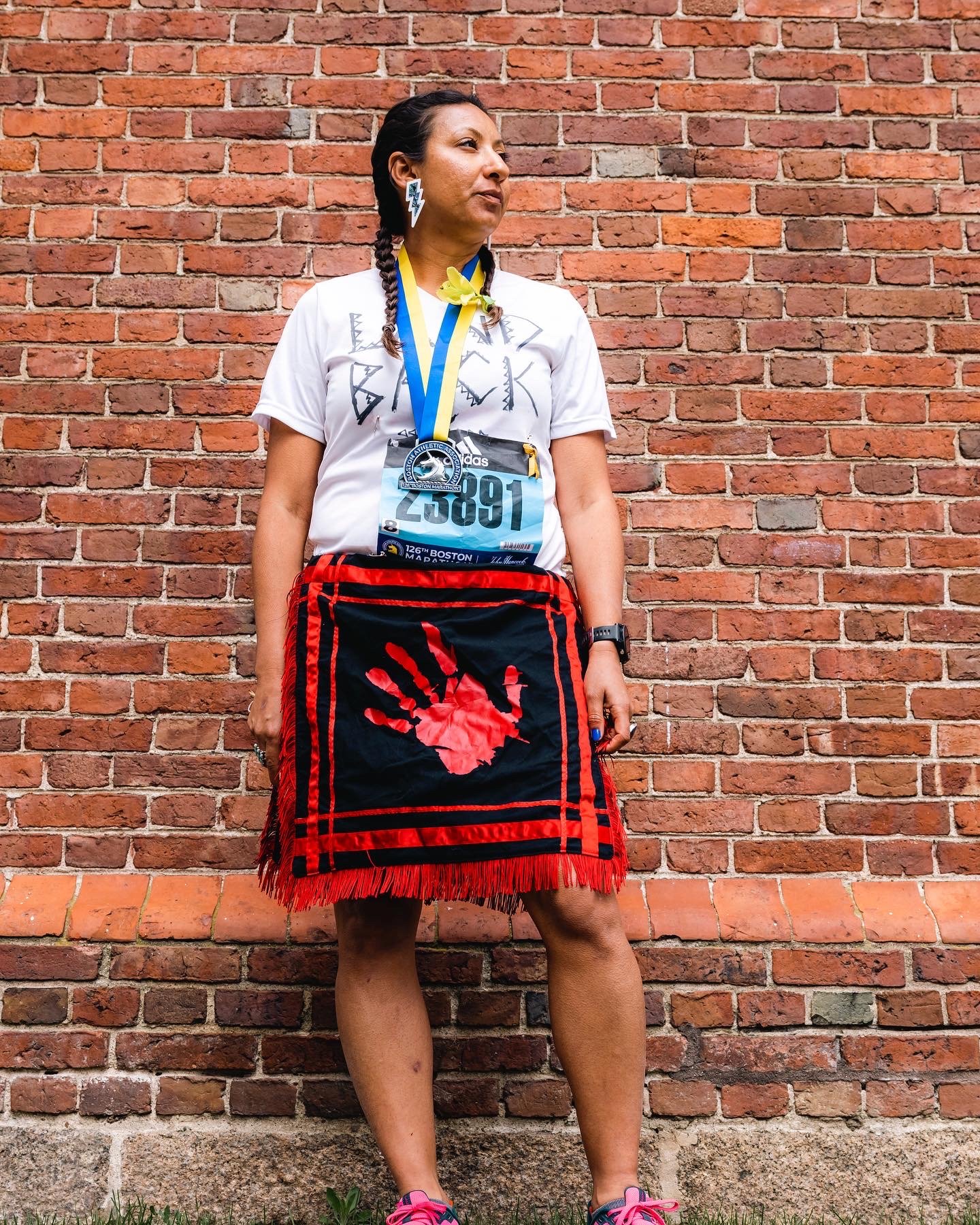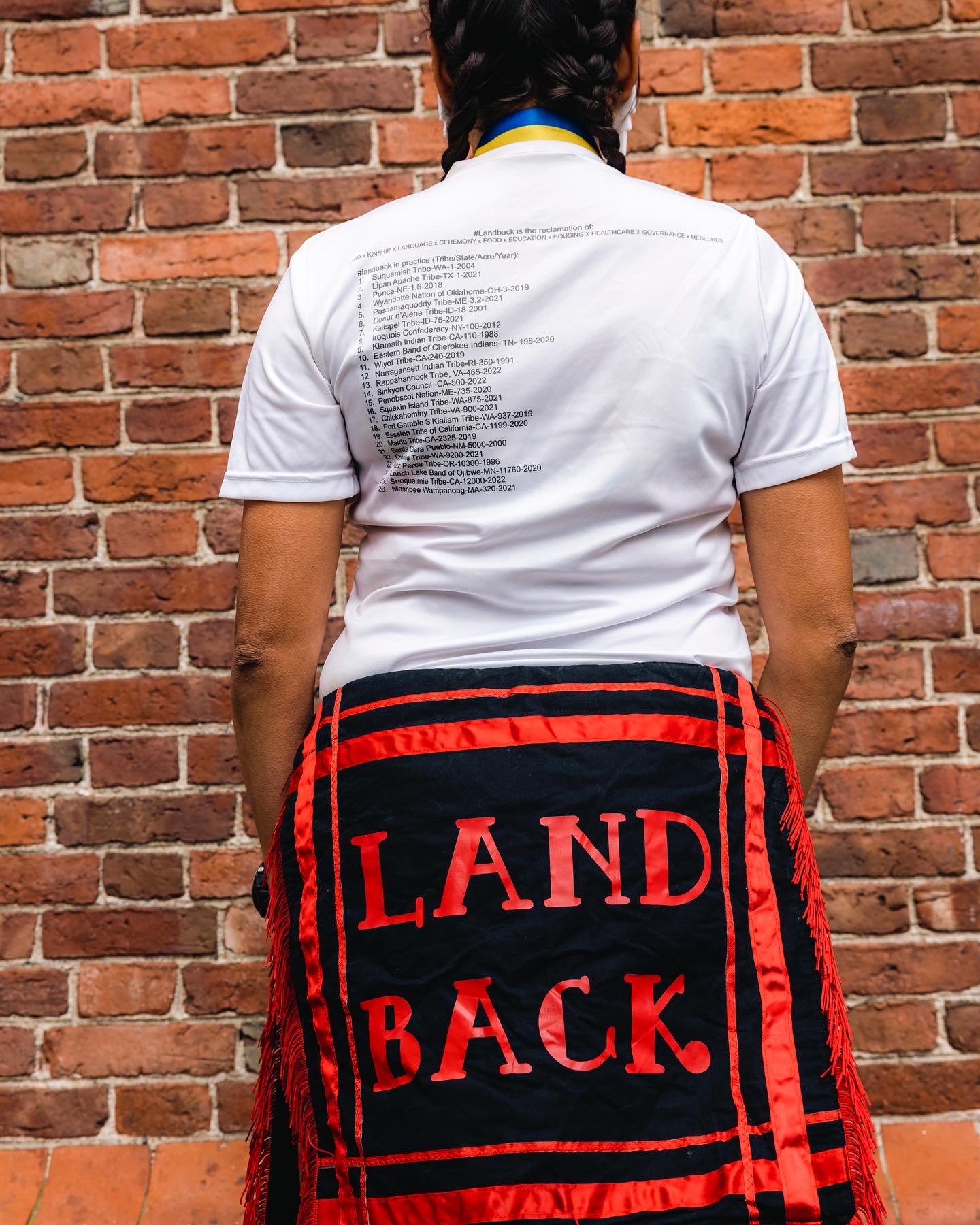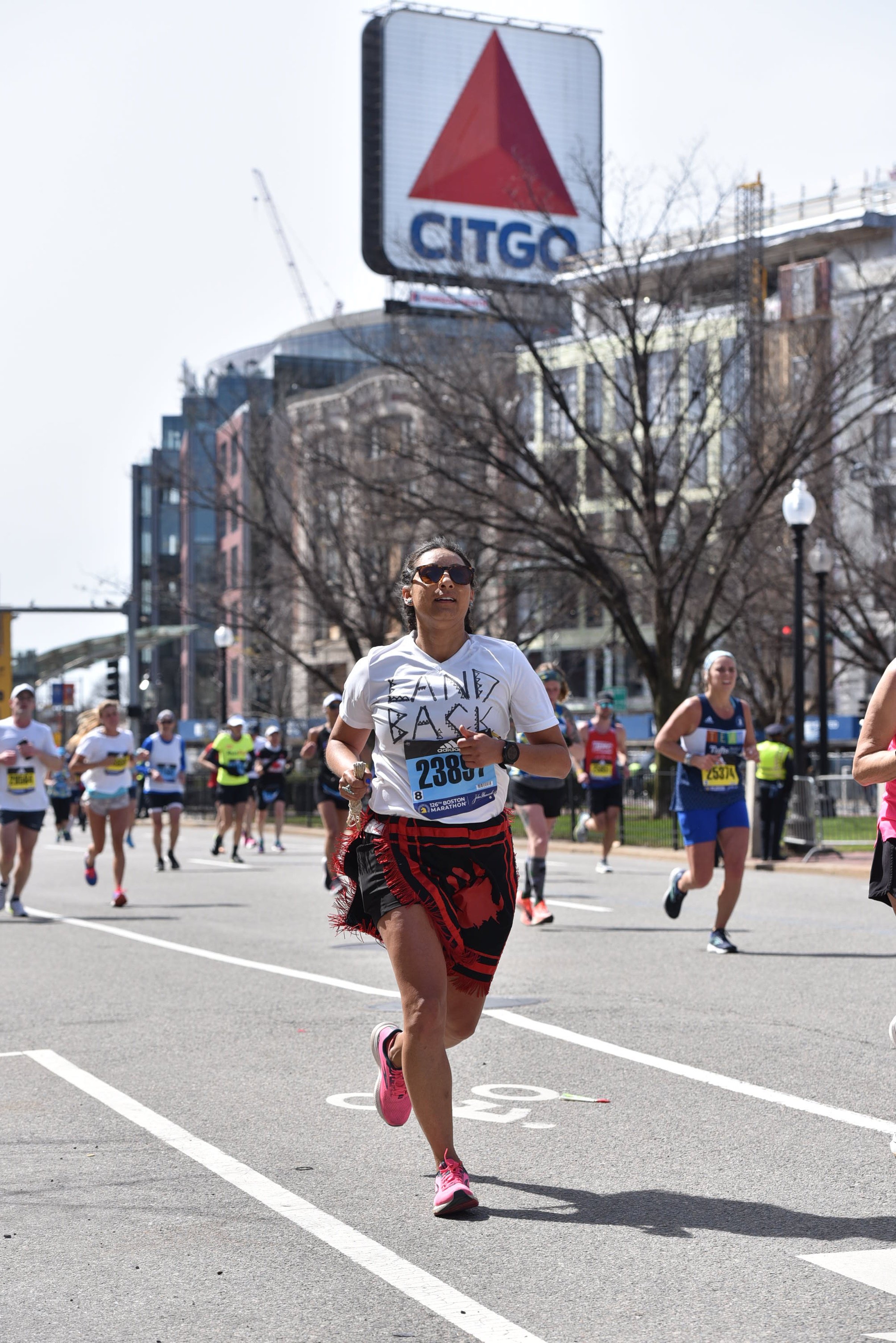Running with Purpose Projects
Boston Marathon 126, with each mile dedicated to an example of #LANDBACK victories.
Each mile was dedicated to a tribal nation who has fought, purchased or gifted their land back, written out on the back of my shirt. This is by no means an exhaustive list and did not include federal land trust cases (didn't want to make this too complicated). Land is one of the greatest resources for tribal nations across the country. Some 56 million acres are held in trust by the federal government for tribes. That's approximately 2 percent of the country. However, 90 million acres were taken by the United States between 1887-1934 through the Allotment Act, termination and, sometimes, illegal actions. As an environmental scientist who studies Indigenous land stewardship practices, I've been thinking deeply about #landback and its role in addressing biodiversity loss and the #climatecrisis. To me, #Landback is the reclamation of our land relations, kinship relations, our language, our ceremonies, our food traditions, our education practices (often land based), our housing and healthcare, and governance! It truly is the embodiment of what so many Indigenous community organizers, community Experts & knowledge holders, Indigenous lawyers, Indigenous scientists, and Indigenous historians have fought for. It is the reclamation of identity. Leanne Betasamosake Simpson describes land relations as providing “place-based ethical framework” that enables “process-centered modes of living that generate profoundly different conceptualizations of nationhood and governmentality—ones that aren’t based on enclosure, authoritarian power, and hierarchy” (L. Simpson 2017). Unpacking and thinking about land means to understand the physical and metaphysical in relation to the concepts of place, territory, and home” (Goeman 2015).
Prior to this run, I have spent time visiting with different tribal nations out here on the East Coast-- learning from what we in the Southwest call "first contact tribes." Many Americans think this first contact is part of the past-- but many communities today are still reeling with the ripple impacts of settler colonial contact, still fighting to reclaim identity & recognition despite having contracts with the British Crown before the American Government was established.
5o miles for 5o indigenous scientists
Due to COVID-19, my graduation, and that of many other students in the class of 2020, was canceled. To find an alternative way to celebrate, I decided to run 50 miles to celebrate my graduation, which I ran on March 20, 2021 along the Arizona Trail. The Arizona Trail is an 800-mile recreational trail that spans from Mexico to Utah along Indigenous trading routes. I ran a 50 mile section close to Tucson, which is where my community is located. Along the run, I dedicated each mile to a different Indigenous scientist who has navigated the hallways of academia to create more pathways for future Indigenous students.
Throughout my education journey, I have been so grateful for the scholarship of Indigenous knowledge holders before me, and can only imagine what their experiences were like being the first in a field, fighting to show the validity in their lived experiences. This run is a small step towards paying homage to them. My list of these inspiring scientists is here. I dedicated the last mile to students of the future, and used this run as an opportunity to raise funding the the AISES T3 Fund, which provided financial support for Indigenous students impacted by COVID-19. Currently, we have raised $8,500 dollars! If you’d like to donate, the link is here.
Will run for soil
We are on a mission to make soil, and the soil scientists who study them, household names.Will Run for Soil tells the story of soil through the lens of the people who study it. The documentary follows Karen Vaughan (a pedologist) Yamina Pressler (a soil ecologist), and Lydia Jennings (a soil microbiologist), as they explore soils while running through the sweeping wilderness of the desert southwest. Far from professional ultrarunners, Karen, Yamina, and Lydia challenge themselves to run their longest distance ever in an effort to expand our collective notion of why we should care about soils. In the process, they confront ideas about what a scientist looks like, what it means to be a soil scientist, and what the human body is capable of accomplishing for the love of soil.
How far are they willing to go to protect Earth’s most precious natural resource?
FILMING SEPT 2021!
FootPrints Running Camp to Address the Climate Crisis
I’ve begun working with professional trail/Clif athlete running ambassador Dakota Jones and the Footprints Running camp to create environmental solutions through the outdoor industry. We bring college-aged runners and educators together to protect the places we play and build a climate future for all. Check out the short film about Footprints below.
